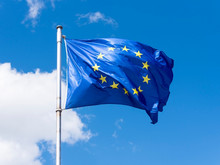Dans une entrevue pour l’Association d’études sur la communauté européenne-Canada, le doctorant Johannes Müller Gómez (Centre Jean Monnet) explique sa recherche sur l’effet des structures politiques de l’Union européenne et du Canada sur le respect de leurs engagements climatiques internationaux. Il revient notamment sur ses intérêts de recherche et son parcours qui l’ont mené vers l’étude de la politique européenne.
EXTRAIT : The European Union is a political entity that is still ‘in the making’. European integration is an ongoing process, very dynamic and partly full of surprises. Two recent examples: first, the spread of the COVID-19 pandemic and the economic decline led to initiatives to further develop the EU and to jointly fight the current crisis. The recovery plan the European Council decided on in July 2020 represents a major integration step. For the first time, the Union will borrow several hundreds of billions of Euros in the capital markets to contribute to overcoming the economic crisis. Second, the decision of the United Kingdom to leave the Union triggered a comprehensive debate on the future of the EU. After the Brexit vote in 2016, the remaining EU27 decided to initiate a phase of reflection on the future of the Union and to launch a reform process that seeks to make the EU more efficient, more effective and more democratic.
À lire ici : www.ecsa-c.ca/post/young-scholar-johannes-m%C3%BCller-g%C3%B3mez-on-his-dissertation-in-the-field-of-eu-studies
